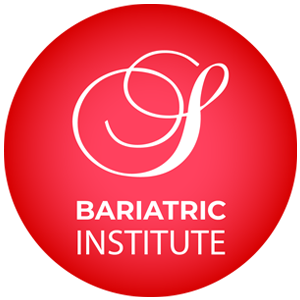What Results Should I Expect After Laparoscopic Gastric Sleeve?
Imagine a life free from the limitations of obesity.
Understanding the expected results after laparoscopic gastric sleeve surgery involves a comprehensive analysis, as this procedure impacts both physical health and lifestyle. In this detailed exploration, we will cover various aspects including weight loss expectations, dietary changes, psychological effects, potential complications, and long-term lifestyle considerations.
1. Weight Loss Expectations
a. Immediate to Short-Term Weight Loss
In the immediate aftermath of the surgery, patients typically experience rapid weight loss. This phase is characterized by a significant reduction in calorie intake due to the reduced stomach size. During the first 3 to 6 months, it is common for patients to lose between 25% to 35% of their excess body weight.
The body’s response in this phase is typically enthusiastic due to a drastic change in diet and calorie absorption capabilities.
b. Long-Term Weight Loss Sustainability
Moving towards the 1 to 2-year mark post-surgery, weight loss tends to stabilize. The average long-term weight loss for gastric sleeve patients is around 50% to 60% of their excess weight. This phase requires a more concerted effort in maintaining the lifestyle and dietary changes initiated post-surgery.
It is crucial for patients to adhere to the nutritional guidelines and exercise regimens provided by their healthcare providers to ensure sustained weight loss and avoid weight regain.
2. Dietary Changes and Nutrition
a. Immediate Postoperative Diet
Immediately following surgery, patients are put on a liquid diet. This is crucial to allow the newly restructured stomach to heal. The diet gradually progresses from clear liquids to pureed foods, and eventually to solid foods over a period of weeks.
This gradual progression is essential for the patient to adapt to their new stomach capacity and to prevent complications such as gastric leaks or obstruction.
b. Long-Term Dietary Adjustments
Long-term dietary changes are pivotal in ensuring the success of the surgery. Patients are generally advised to consume protein-rich foods, avoid sugary and high-fat foods, and to eat small, frequent meals.
Adherence to these dietary guidelines not only aids in weight loss but also in preventing nutritional deficiencies. Regular consultations with a dietitian are recommended to ensure a balanced intake of nutrients.
3. Psychological Effects
a. Adjustment Period
The postoperative period can be challenging psychologically. Many patients experience a significant shift in their relationship with food.
Emotional eating, which might have been prevalent before surgery, needs to be addressed and managed. Support groups and counseling can be beneficial during this transition.
b. Long-Term Psychological Well-being
In the long term, many patients report an improvement in quality of life and self-esteem. However, it’s important to note that some may struggle with excess skin and body image issues after substantial weight loss.
Continued psychological support and possible surgical interventions for body contouring might be necessary for complete psychological recovery.
4. Potential Complications and Risks
While laparoscopic gastric sleeve surgery is generally safe, it’s not devoid of risks. Short-term complications can include infections, bleeding, and issues related to anesthesia. Long-term risks include gastric reflux, nutritional deficiencies, and in rare cases, sleeve dilation which can lead to weight regain. Regular medical follow-ups are essential to monitor and address these potential complications.
5. Long-Term Lifestyle Considerations
a. Exercise and Physical Activity
Regular physical activity is a cornerstone of maintaining weight loss post-surgery. Patients are generally encouraged to engage in at least 150 minutes of moderate aerobic activity per week, along with strength training exercises. This not only aids in weight maintenance but also improves overall cardiovascular health.
b. Ongoing Medical Monitoring
Regular check-ups with the bariatric team are crucial. These check-ups typically include nutritional assessments, mental health evaluations, and monitoring for any postoperative complications.
Adherence to these follow-up appointments significantly contributes to the long-term success of the surgery.
Take the First Step Now!
Our specialists are at your service to clarify doubts.
Schedule Your Free Consultation
Take the first step towards a new you. Schedule a consultation today and discover how the Laparoscopic Gastric Sleeve Miami procedure can help you achieve long-lasting weight loss results.

